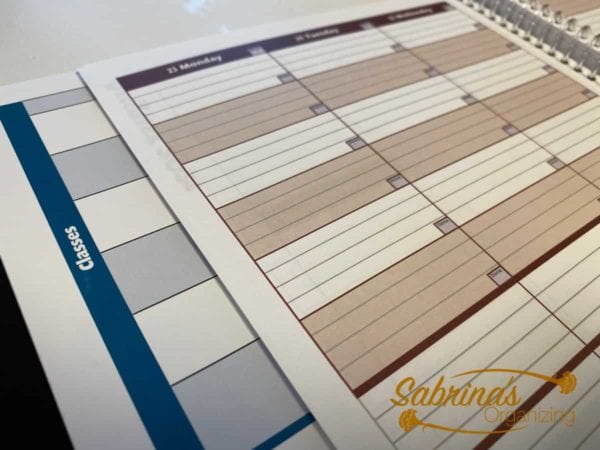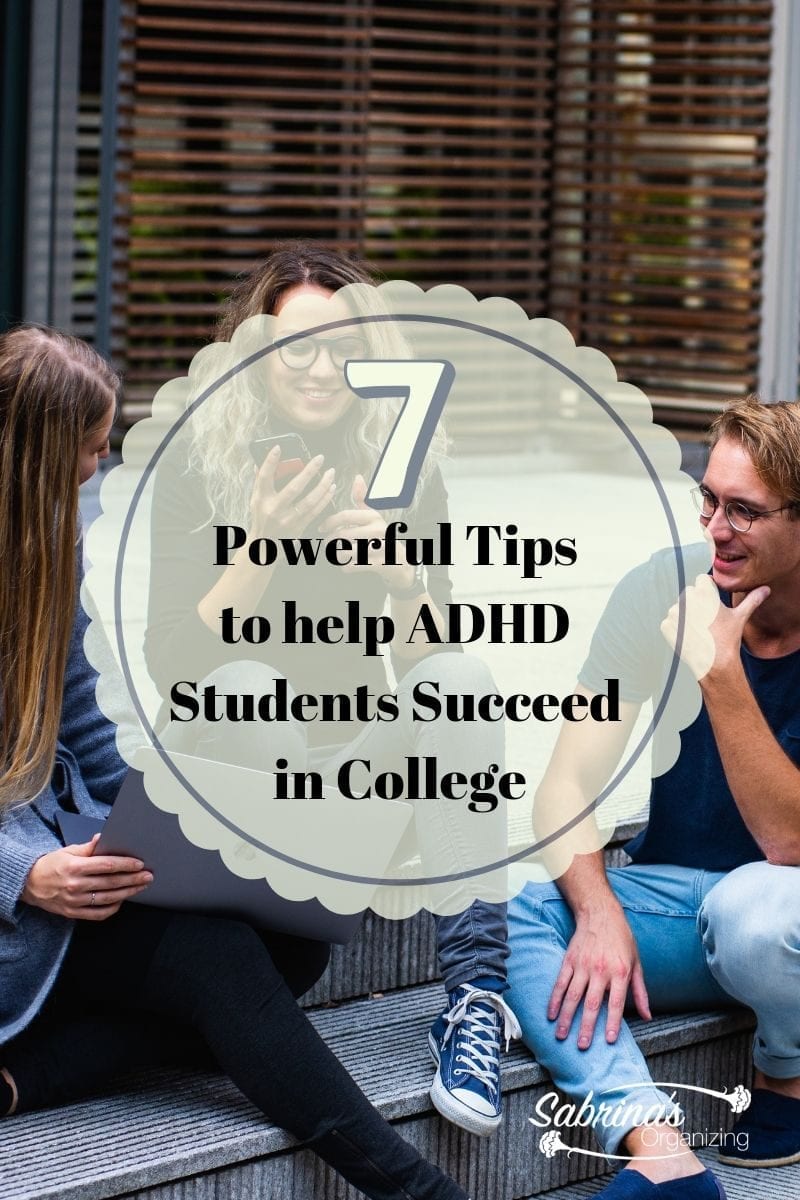The enormous stress that each first-year student experiences at this time of year can make anyone want to run and hide. If a child has ADHD, it can be even more overwhelming. This week, I am sharing some tips on how students with ADHD succeed in College. Follow along to learn how. These tips are not only for ADHD students; however, they can also help any freshman.
Jump to:
Read all the emails.
Take action on the ones that need a response. Place other ones in assigned folders as references for the future. It's OK to delete ones that don't matter. The less cluttered an email inbox is, the less likely the student is to lose important correspondence. If the student has a private email, they can forward their email to their school's email, so they only have to check one place for emails. Determine the best time of day to check your emails. Find a quiet place with no distractions. This could be at lunch or breakfast while enjoying a meal.
Print out the campus map after the course selection is finalized.
Circle the classroom buildings and mark areas like the cafeterias and gyms. Take a photo of the key (affiliate) and the circled map just in case the student loses the paper copy. Use this marked-up map as a reference for the first few weeks of the school year. This is particularly helpful for students on larger campuses.
Talk to your doctor.
Talk to the doctor and get a current evaluation from them to determine if any changes are necessary. Know the side effects of the medication and what would happen if the person is on meds and drinking alcohol.
Be an advocate for yourself.
The student should know what the evaluation means and how to express his or her needs to the doctor and professor. The student should also meet with the professors early to get help before things get out of hand and find out what the campus has to assist ADHD students(Amazon (affiliate) Affiliate Link).
Determine the appropriate academic planner to use.
For an effective time management strategy, it may be essential to have two planners. The first is a paper academic planner. Pick a printed time and date planner to minimize the amount of writing on the planner. Creative journaling is beautiful, but when there is no time, the first thing to go to is the beautiful lines and decorative stickers, which make it more organized. Also, ensure a section for each subject for that semester.
Digital Calendar
Then, a digital appointment calendar needs to be set up. It's also essential to make a digital appointment and use alerts to help stay on schedule with the different tasks. Add the due dates for the entire syllabus to your digital calendar. If the professor has it available before classes start, do it then. Add an alarm to each deadline set for a week prior.

Visit our affiliate for the academic planner (affiliate) options. These planners were designed by Leslie Josel, a Professional Organizer founder whose son had ADHD. She has a useful website to help parents with ADHD kids as well.
- Determine beforehand what is needed for the learning process. Some lectures can be recorded. Purchasing an audiobook and a textbook may be an option. Rewriting notes to help ingrain the lecture may also assist an ADHD person. If possible, set up a study group within the first few weeks. This may help keep a student-focused while studying for tests or labs.
- Determine what clubs and activities to do BEFORE starting school. In the first few weeks, students get overwhelmed with all the work, so they either do not get involved or make a quick decision about joining a club. That's a big mistake. Joining a club is important for feeling at home on a new campus and meeting new like-minded individuals. Feel free to visit my "What I learned in College" post.
Stay consistent
Discipline is essential in college. So, trying to stay healthy, sleep well, and control stress by finding things to do and enjoy will keep a student on the right track. Remember, taking early action to improve a situation will significantly help.
To help an ADHD College student with some direction on how to address a particular problem, I listed scenarios. I suggested actions a student can take to prevent them from happening in their first year.
Problems and Solutions for College Students with ADHD
If you lose your keys, credit cards, or badges, use a basket or a hook near the door. Keep your keys and bag in one place, preferably near the room's door.
It's hard to wake up in the morning for those early classes; it's essential to have two or even three alarms. Go to bed early. I know that isn't easy. Set at least two alarms, one on your phone and one displayed across the room, so you have to get up and turn them off. Make sure the volume is up. Do not only use your phone. Try a regular digital clock as well.
Keep track of time doing different tasks: Wear an analog wristwatch. You can see time fly. =) You can try a stopwatch to determine how long it takes you to do things like take a shower, get dressed, etc. When you know how long it takes you to do different tasks, you can use the stopwatch to time yourself for various daily activities to stay on schedule.
I hope this post inspires you to improve an ADHD student's freshman year. Below I included some resources that are perfect for ADHD College students.
Resources for ADHD College Students
ADHD resources for college students: ADHD in College Page. The Attention Deficit Disorder Association offers many tips and resources to help students successfully thrive in college. Visit their site to read more.
ADDitude Magazine website offers resources to help manage ADHD in college.
Visit Order Out of Choas student coaching if you need personal assistance before going away to college.
Naturally, neurodiversity can add additional challenges to the ebb and flow of campus life. And with 15 to 20% of the world's population living with dyslexia, ADHD, ASD, or another form of neurodiversity, it certainly isn't uncommon to struggle in higher education. While as many as 75 programs exist across the U.S. to help neurodiverse students progress through higher education, it can help you feel prepared before you start. That's why Studocu has created a comprehensive collection of study tips to help neurodiverse students navigate higher education. This guide covers a range of techniques to help. It is a must-read for anyone considering college and identifying as neurodiverse. It will help you reduce sensory overload, avoid procrastination, and boost productivity.
Related Posts:











Seana Turner says
This can be such a big transition. Being aware of what resources are available to college students BEFORE the need arises is so helpful, as is establishing homes for everything a young person brings to school. I remember one key step was making sure my children's computers were all set up with the necessary accounts and logins so they wouldn't get stuck trying to figure those things out. It is easy to fall behind in the first couple of weeks, and once that happens, it can be hard to recover. Very helpful advice here to help young people get a strong start.
Linda Samuels says
Going to college for the first time can be overwhelming. Each student responds differently, but having some proven strategies and taking time to do some advance trouble-shooting, is so valuable. You've shared some wonderful advice that students can access. I liked your idea of the triple wake-up system. Have you heard of alarm clocks that jump and you have to "catch" them to turn them off? That's another idea. Here's a link to one: https://clocky.com
Sabrina Quairoli says
That's awesome! I never heard of it. Thanks for sharing, Linda. =)